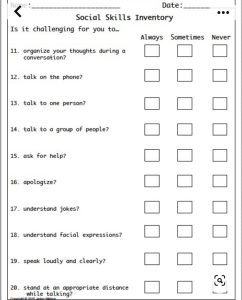Competency 9: Evaluate practice with individuals, families, groups, organizations, and communities
In my social work role, I will use evidence-based quantitative and qualitative research methods as a guide when designing culturally responsive approaches for the evaluation of processes as well as intervention outcomes. In this process, I will collaborate with clients as well as stakeholders for best practice outcomes. I find of crucial importance continuously seeking, critically researching, and applying evaluations based on scholarly literature to inform and evaluate practice. I will apply ethical principles when evaluation is performed, in order to ensure the protection and dignity of individuals, families, groups, organizations, and communities. I will also provide leadership in affecting sustainable changes in service delivery through the use of evaluation within the scope of my practice.
9.1 Select evidence-based evaluation strategies according to their efficacy with specific client populations.
Course Evidence: In my Advanced Administrative Practice: Program Development class, I had the opportunity to work with several other classmates on developing a program proposal to address a need in the Chattanooga,TN area. Our group focused on the need for a program to assist males who have fallen victim to human trafficking, as well as assisting them in re-entering their lives in the work place etc. A section of the program proposal focused on evaluation methods.To view the section on the evaluation plan, scroll to page 26. To view the completed paper, click here: Green Light Final Paper(1).
Field Evidence: Throughout my field experience, pre and post survey assessments were given to groups. This would provide evidence-based evaluation strategies in order to help improve their behaviors.These surveys provided questions that were easy to understand, and demonstrated how the student was doing along the way as well as how they interacted with those around them.These questions were given at the beginning of our group sessions and then once more at the end of our time together. This allowed me to see the progress the students had made throughout our time together in small group. An example is provided here: Social Skills pre:post assessment.
9.2: Evaluate the efficiency and effectiveness of practice outcomes across systems.
Course Evidence:In my Advanced Clinical Practice: Group Psychotherapy class I had the opportunity to write several papers reflecting experiences that I had each week in group. Each week we had the opportunity to be a participant or a facilitator. This assignment allowed me to look at each section of a session and not only demonstrate where I could improve, but also to create a dialogue of what I could do differently in the future in order to provide better quality care to clients.This reflection helped me assimilate and evaluate myself on handling and resolving conflict in group settings and becoming more confident with the process.It also assisted me in evaluating the effectiveness of CBT as I identified negative thought patterns that could be impacting behaviors and emotions. CBT groups empower you to reshape your experience by getting to the root of the thought. Please click here and refer to page 2: Group Reflection.
Field Evidence: The post evaluation for the community resource fair was a model used to guide and evaluate community initiatives working to improve the quality of life in the community. This feedback provides improved community work by encouraging adjustments and any improvements that could be utilized for future events. While the QR code with the invitation to participate was sent to all participants at the fair, each group, the vendors and families respectively, very few participants in each group chose to complete it. A copy of the Vendor evaluation form can be found here; a copy of the Families evaluation form can be found here. 
Skills Used: While completing this competency, I was able to demonstrate observation, communication, organization, as well as critical thinking.
Knowledge Used: Knowledge from this competency was drawn from classes such as Advanced Clinical Practice:Group Psychotherapy as well as my emphasis School Social Work Core Concepts course.
Values Present: Integrity and dignity and worth of the individual were present throughout this competency. It is imperative that interventions and methods are evidence-based and accurate in order to provide positive results.
Cognitive Processes Used: Cognitive processes were demonstrated throughout this competency such as evaluating methods, and understanding the need for evidence based research and active listening.
Affective Processes Used: Affective processes were present such as seeking to identify how the interventions impacted individuals and groups that I worked with. It was vital that I did pre and post assessments as well in order to evaluate results.
Theoretical Foundation: Social Learning Theory: This theory is based on the idea that learning occurs through observation and imitation. New behavior will continue if it is reinforced. According to this theory, rather than simply hearing a new concept and applying it, the learning process is made more efficient if the new behavior is modeled as well.